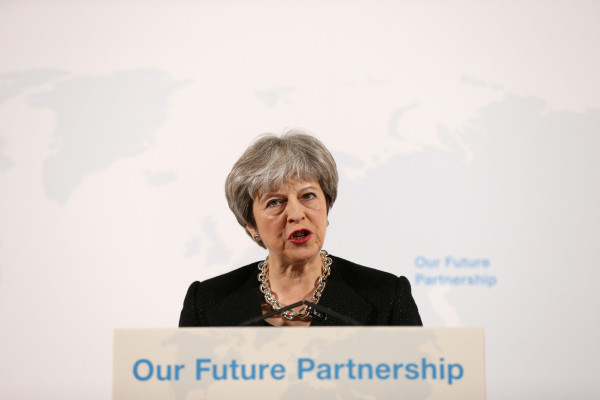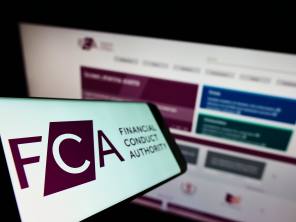

Prime Minister Theresa May has ruled out a "single rule book" for financial services between the European Union and the UK after Brexit.
In a speech on Friday (2 March) setting out some details of what the UK was seeking during trade negotiations with the EU, Mrs May ruled out the prospect of keeping close regulatory alignment after Brexit.
She said: "We are not looking for passporting because we understand this is intrinsic to the single market of which we would no longer be a member. It would also require us to be subject to a single rule book, over which we would have no say.
"The UK has responsibility for the financial stability of the world’s most significant financial centre, and our taxpayers bear the risk, so it would be unrealistic for us to implement new EU legislation automatically and in its entirety."
Passporting is a process which allows a firm based in one EU country to do business in another and is based on the idea that the whole EU has a broadly similar regulatory regime based on rules such as Mifid II and the General Data Protection Regulation.
In 2016 the Financial Conduct Authority revealed more than 5,400 UK firms use financial services passports to do business in Europe, with more than 8,000 European firms doing the same in the opposite direction.
Firms can hold multiple passports for different business activities and different member states, meaning the total number of passports held by UK firms is 336,421.
Speaking on Friday Mrs May said that since UK-located banks underwrite around half of the debt and equity issued by EU companies and provide more than £1.1trn of cross-border lending to the rest of the EU, this was an example of where "only looking at precedent" would hurt both the UK and EU economies.
She said: "As in other areas of the future economic partnership, our goal should be to establish the ability to access each others’ markets, based on the UK and EU maintaining the same regulatory outcomes over time, with a mechanism for determining proportionate consequences where they are not maintained.
"But given the highly regulated nature of financial services, and our shared desire to manage financial stability risks, we would need a collaborative, objective framework that is reciprocal, mutually agreed, and permanent and therefore reliable for businesses."
Mrs May did not then go on to set out what this framework would look like or how it would operate in practice.
Late last year the Financial Conduct Authority warned firms in the financial services sector that a “bonfire of regulations” after Brexit would not be in their interests.
Christopher Woolard, the FCA’s executive director of strategy and competition, said many standards were now set globally and dispelled the idea that post-Brexit Britain could attract business by slashing its regulatory burden because there tends to be a "flight to quality".
damian.fantato@ft.com



